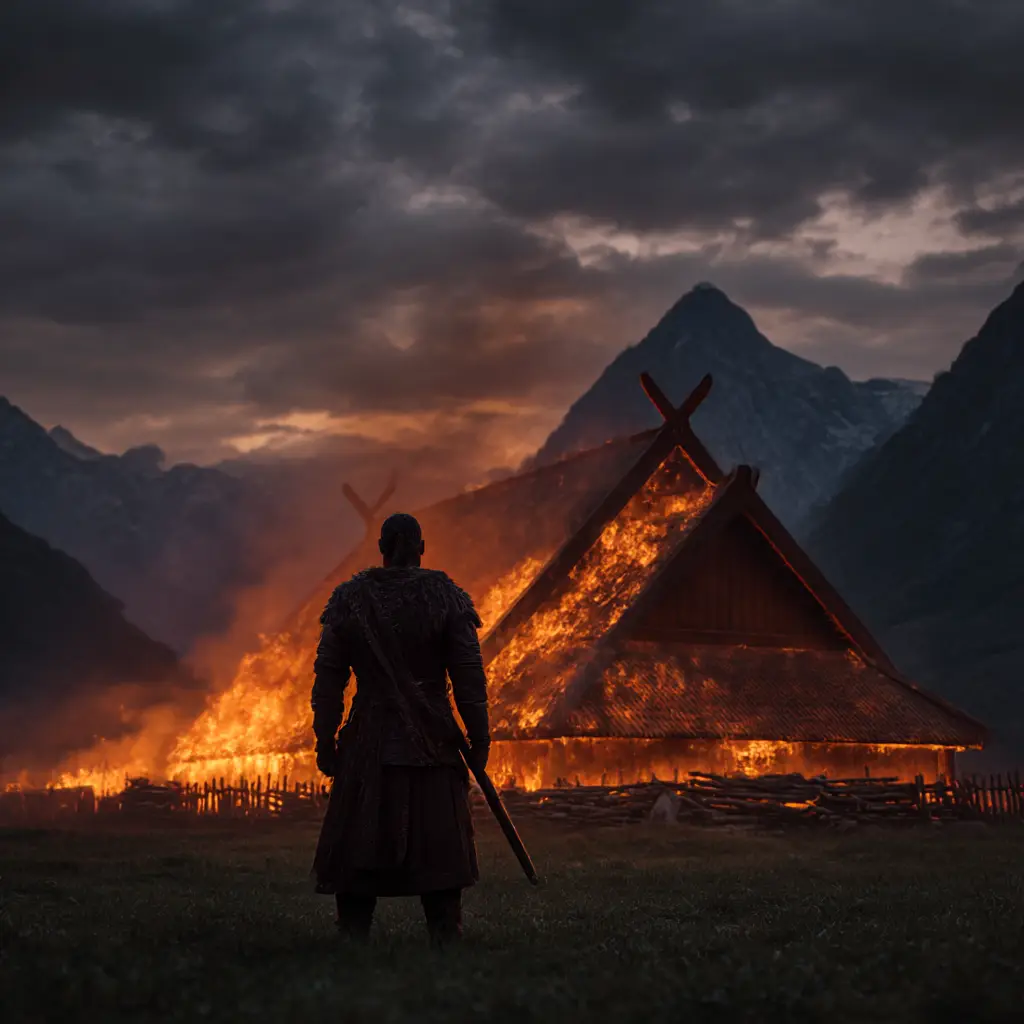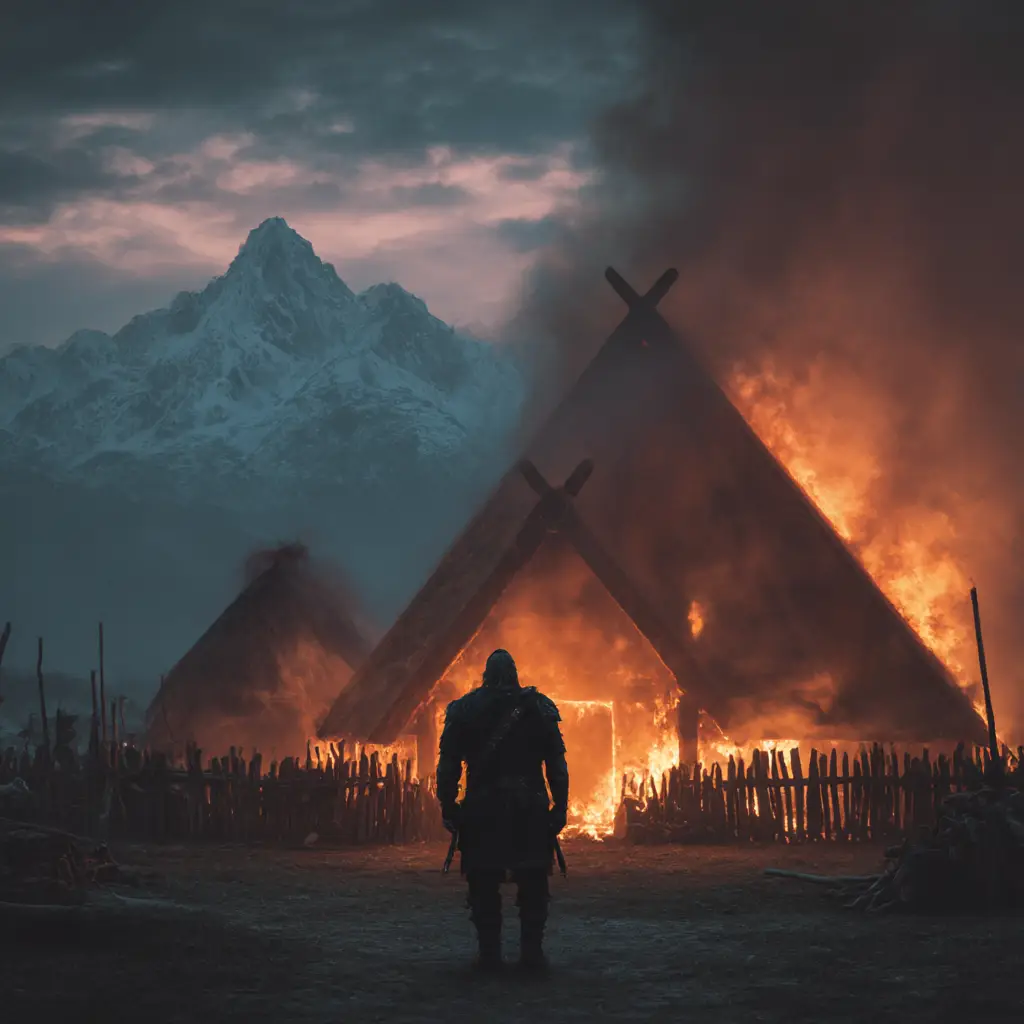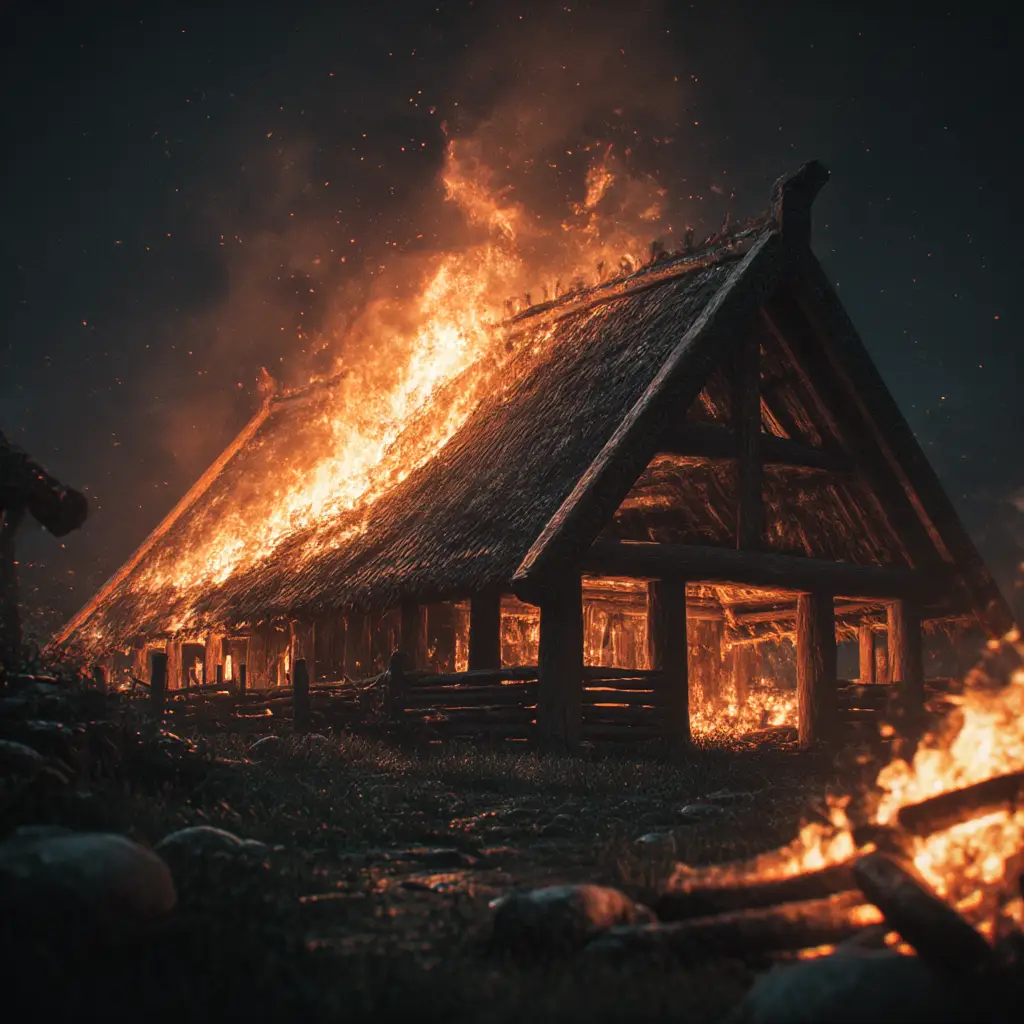The Burning of Njáll is one of the most powerful and tragic episodes in Njáls Saga, one of the great Icelandic sagas from the medieval period. It tells the story of loyalty, revenge and fate, culminating in the destruction of Njáll Þorgeirsson, his family, and his home at Bergþórshvoll.
Njáll Þorgeirsson was a wise and respected chieftain known for his deep understanding of law and human nature. He was a close friend of Gunnar of Hlíðarendi, and after Gunnar’s death, Njáll became a central figure in the ongoing feuds that defined Icelandic society in the tenth century. Njáll’s sons, particularly Skarphéðinn, were strong and bold but also proud and quick to anger, which led them into violent conflicts with neighbouring families.
The feud that would lead to the burning began with a long chain of slayings and legal disputes. Despite Njáll’s attempts to settle matters peacefully, honour and vengeance drove events towards tragedy. The final confrontation came when Flosi Þórðarson, seeking revenge for the death of his kinsman Höskuldr Hvítanessgoði, gathered a large group of men to attack Njáll’s home.
In the early hours, Flosi and his followers surrounded the farmhouse at Bergþórshvoll and set it alight. Inside were Njáll, his wife Bergþóra, their sons, and several others. When offered a chance to leave, Njáll refused, saying he did not wish to outlive his sons. His wife chose to stay with him, declaring that they had shared one bed in life and would share one in death. The family lay down together beneath an ox-hide, meeting their end as the flames consumed the building.
The burning shocked Iceland and led to a long and difficult process of atonement and settlement. Flosi and his men were pursued, and many were eventually brought to justice through the laws that Njáll himself had once upheld. Yet the saga does not portray the event as a simple victory of good over evil. Instead, it reflects on the inevitability of fate, the destructive nature of vengeance, and the fleeting peace that can follow violence.
The Burning of Njáll remains one of the most memorable moments in all of Icelandic literature. It captures the stark beauty and harsh justice of the Viking Age world, where wisdom could not always overcome the pull of honour and retribution, and where even the most virtuous could be undone by the relentless turn of destiny.


